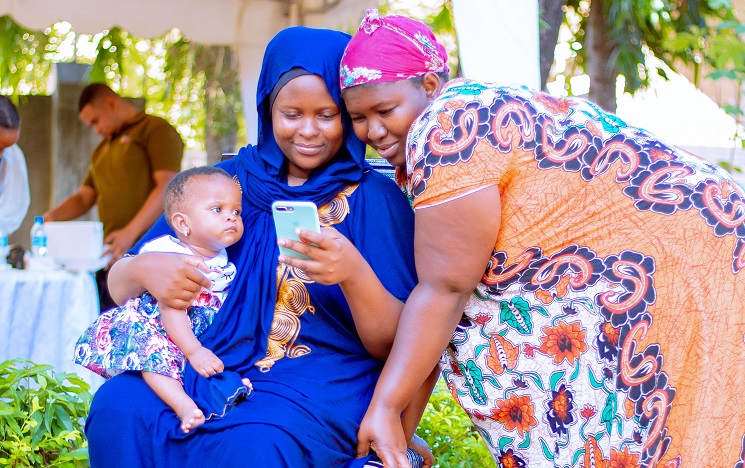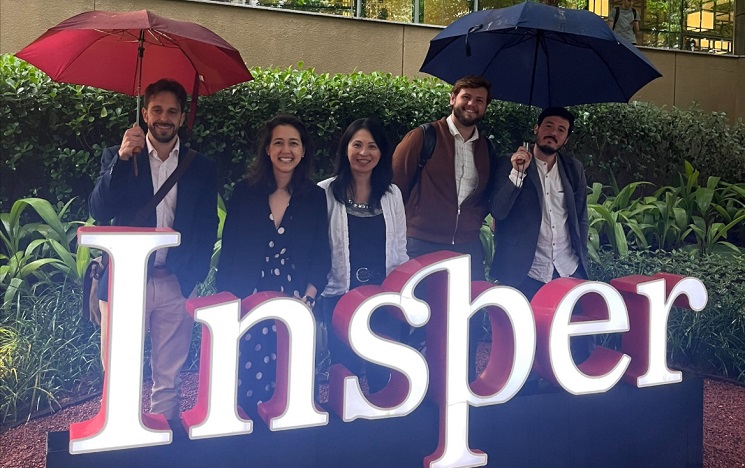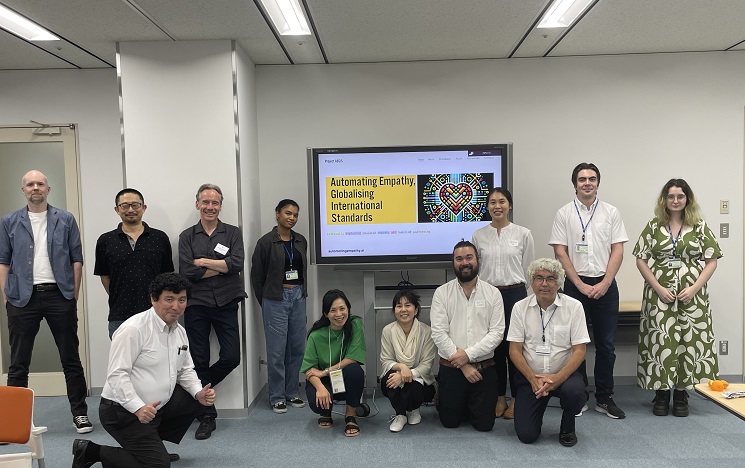SCLT research
Learn more about the recent work by experts in the Sussex Centre of Law and Technology (SCLT).
Projects
Our team has several ongoing research projects within the UK and around the world, and we’re always keen to be part of new collaborations.
Developing justice technology: a digital legal assistant to increase access to justice

This ongoing project involves the design and development of a digital legal assistant trained on Tanzanian legal datasets to support women’s access to justice. It examines the potential of AI to provide timely, accessible legal guidance, focusing on co-design, trust, and user experience in low-resource settings. In partnership with international development organisations and local legal advice clinics, the tool is being piloted in Dar es Salaam to support both advisers and direct users, with plans to scale across the region.
Research lead: Dr Sarah Stephens
Artificial intelligence and access to justice: Identifying the opportunity for AI to address legal aid backlogs in Malawi
As part of a Foreign, Commonwealth and Development Office-funded initiative, Dr Sarah Stephens explored the opportunities and limitations of using AI to address legal aid backlogs in Malawi. Through focus groups with technology developers, legal professionals, judicial officers, and university stakeholders, the project identified promising AI use cases, including legal research assistants, document automation, public-facing chatbots, and case triage systems leading to a published report outlining recommended use cases for AI to support justice service delivery in Malawi.
Research lead: Dr Sarah Stephens
Platform regulation in Brazil and in the UK: designing and enforcing duty of care frameworks

INSPER workshop in São Paulo, Brazil
This research project is an international collaboration between the University of Sussex and Insper Instituto de Ensino e Pesquisa (INSPER), in Brazil. The project examines the concept of ‘duty of care’ as a regulatory framework for digital platforms. Specifically, it focuses on analysing the UK’s experience with the Online Safety Act 2023 to gather insights to inform Brazil’s approach to platform regulation. It is funded by the British Academy’s ODA Challenge-Oriented Research Grants 2024 Programme, supported under the UK Government’s International Science Partnerships Fund. Through interviews and workshops, the research team engages with key actors and institutions in the UK and in Brazil to examine the development and implementation of relevant legislation.
Team: Beatriz Kira (PI), Ivar Hartmann, Phoebe Li, Zoe Asser, Ramon Costa
UKRI project: Responsible AI (RAI) Impact Accelerator: Automated Empathy: Emotive AI technologies

Workshop in Tokyo as part of our Automating Empathy Emotive AI project
Funded by the Responsible AI UK Impact Accelerator, project AEGIS sees the Lab partnering with Japan’s National Institute of Informatics, the Institute of Electrical and Electronics Engineers (IEEE), Monash University (Indonesia) and engaging the Information Commissioner’s Office (UK). The goal of AEGIS is to host a series of workshops, assemble a diverse expert working group and develop a ‘technical standard’ to address use of emulated empathy in general-purpose artificial intelligence systems for human-AI partnerships.
Team: Phoebe Li, Andy McStay (Bangor), Vian Bakir (Bangor), Alex Laffer (Winchester), Ben Bland (Consultant)
ESRC Centre for Inclusive Trade Policy (CITP)
The Centre for Inclusive Trade Policy (CITP) is the first Centre dedicated to trade policy funded by the Economic and Social Research Council (ESRC) and by contributions from its component universities. The Centre is led by the University of Sussex and brings together researchers from all four UK nations and several universities overseas. The team comprises scholars from economics, law, business management, politics and international relations. SCLT is involved in the research and knowledge exchange activities in digital service trade, including data governance, intellectual property and technology regulation in international trade agreements.
Team: Phoebe Li, Minako Morita-Jaeger, Ana Peres, Maria Savona, Javier Ruiz
Justice system technology: accountability and transparency
This ongoing project focuses on technological developments in the justice system, considering the implications for accountability and transparency. With funding from the Sheila Kitzinger Programme at Green Templeton College, University of Oxford, project lead Judith Townend set up the UK Courts and Tribunals Observers’ Network which engages with policy and practice issues for open justice and observer access to courts. Research findings and recommendations have informed the House of Commons Justice committee inquiry on open justice, and Townend has presented her work to the Electoral Tribunal of the Federal Judiciary in Mexico and the University of Dundee’s Leverhulme Centre for Forensic Science, among other places. Her book with University of Sussex colleague Lucy Welsh on transparency in the criminal courts, Observing Justice, was published by BUP in 2023.
Project lead: Dr Judith Townend
The impact of our work
Our experts provide vital contributions to international policy-making: here are some recent examples.
Developing Online Procedure Rules for the Ministry of Justice
Dr Sarah Stephens was appointed by the Lord Chancellor to the Online Procedure Rule Committee. She chairs the Inclusion Sub-Committee, leading the development of an Inclusion Framework to guide rulemaking, the design and development of digital justice tools and setting data standards informing the development of online procedure rules for England and Wales.
Policy brief in Brazil
In January 2025, as part of the project Platform regulation in Brazil and in the UK: designing and enforcing ‘duty of care’ frameworks, Dr Kira, Dr Hartmann and Dr Francisco Brito Cruz (a digital policy expert in Brazil) published the policy brief Duty of care and regulation of digital platforms: a Brazilian perspective [add link to pdf]. This brief reflects key points discussed at a November 2024 workshop in São Paulo, Brazil, with 28 experts from the public sector, academia, the private sector, and civil society. It outlines areas of consensus and proposes ways forward to support the advancement of the regulatory debate in Brazil.
Evidence to House of Commons Science, Innovation and Technology Committee
In December 2024, Dr Beatriz Kira, Professor Phoebe Li, Professor Julie Weeds and Research Associate Zoe Asser submitted written evidence to the House of Commons Science, Innovation and Technology Committee inquiry into the links between algorithms used by social media and search engines, generative AI, and the spread of harmful or false content online. Their submission focused on the role and functioning of recommendation algorithms, the risks they pose in amplifying harmful content, and legislative gaps in holding them accountable.
Evidence to House of Lords inquiry into Data and Digital Trade
Dr. Minako Morita-Jaeger, Javier Ruiz, Prof. Phoebe Li and Prof. Maria Savona submitted written evidence to the UK House of Lords inquiry into Data and Digital Trade in October 2024. Their recommendation about taking a coherent approach to data flows/protection was taken forward by the International Agreements Committee in the report, as were the conclusions about wider stakeholder engagement and inclusive trade policy making.